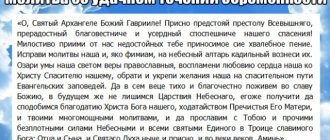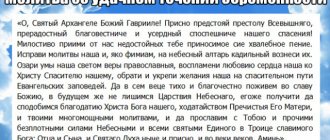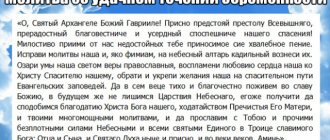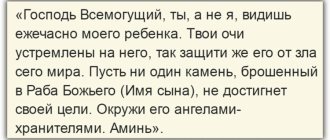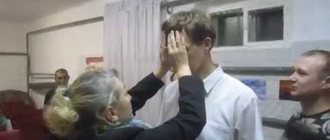“Funeral Prayer” returned to the Lenkom stage
Anastasia PLESHAKOVA (photo by Zhenya Sirina)
The legendary Lenkom Theater hosted the first showings of the restored play “Funeral Prayer.” Our theater observer Anastasia PLESHAKOVA reports.
This performance by Mark Zakharov , based on the play by Grigory Gorin (based on the story “Tevye the Milkman” by Sholom Aleichem) was released more than thirty years ago, in 1989. Without any exaggeration, this was one of Zakharov’s best productions. The play is about the life of the small Ukrainian village of Anatovka at the beginning of the twentieth century, where Ukrainians, Jews, and Russians lived peacefully and were well received by the audience. They laughed and cried at how the poor Jew Tevye, a philosopher by worldview, was trying to arrange the fate of his five daughters through a successful marriage. The audience laughed at every witty reprise. And they were sad when Tevye suffered bitter disappointment not only in his matrimonial undertakings. The play included weddings, funerals, songs and dances, and bloody pogroms... Time passed, but the audience did not get bored with the play. In five years it was played almost four hundred times. And they would have played to a full house if not for the death of the main performer, Evgeny Leonov. The “funeral prayer” planned for January 29, 1994 did not take place: while getting ready for the theater that evening, Evgeniy Pavlovich died suddenly. Mark Zakharov removed the performance from the theater's poster. As a great director, he adhered to the firm belief: “if there is no actor in the troupe for the role of Hamlet (Juliet, Tevye...), there is no need to take on the play.”
At one time, Armen Dzhigarkhanyan rehearsed the role of Tevye, but something didn’t work out. And to numerous requests from the theater management: isn’t it time to start restoring the box office performance, Zakharov replied that he would only think about it “if it becomes completely alarming and sad.” And in general, the past should remain in the past.
After the Master left, Lenkom director Mark Varshaver finally decided to return the legend to the stage.
Photo: Zhenya Sirina
Alexander Lazarev took on the reconstruction . Actor, not director. At the premiere, it became clear that he had passed the exam for his directorial debut. There is no gag in his reconstruction. He made the most accurate restoration of the legendary production, preserving the mise-en-scenes composed by Mark Zakharov, choreography, costumes... The same wonderful music by composer Mikhail Gluz, the same ingenious scenography by Oleg Sheintsis, the same charred palisade and golden domes of the church. And even the white horse, phlegmatically chewing hay in Tevye’s barn, seems to be still the same. Not to mention the ironic, subtle text by Grigory Gorin. What else? The cast was updated, which is why the performance turned out different. Although there are many artists on stage who played in the first version. Over the years, they have matured and moved on to other roles.
Sergei Stepanchenko, who 30 years ago was a police officer, now appears in the role of Tevye. And the police officer is played instead by Viktor Rakov, who played the role of Menachem-Mendl for Zakharov (in the first cast this role was played by Alexander Abdulov). Thirty years ago, Ivan Agapov was a student of Perchik, but now he has matured and tried on the Menachem-Mendl lapserdak. Actor Alexander Sirin, who played the role of the tailor Motl for Zakharov, in the remake plays the age-old role of the butcher Laiser-Wolf... Some roles were passed on to the actors “inherited” from their parents. In addition to Stepanchenko, Tevye’s son, Andrei, plays in another cast. His eldest daughter Tseytl is Tatyana Zbrueva, the daughter of Elena Shanina, who thirty years ago was Tseytl herself... Someone will probably say: acting continuity is nice, but there is not and cannot be a second Leonov. No matter how wonderful the current performers are, the original had a different acting caliber. Nobody argues with this: thirty years ago the scale was different and not only at Lenkom. He was different everywhere.
As for the new “Funeral Prayer,” this is perhaps the best thing Lenkom has released since Mark Zakharov left. It is no coincidence that all tickets for the upcoming shows have been sold out.
Photo: Zhenya Sirina
The premiere took place at the Lenkom Theater, which can be called an “anti-premiere”. Because this is a reconstruction, restoration, re-creation of the famous performance of Mark Zakharov “Funeral Prayer” (1989) based on the play by Grigory Gorin, based on the prose of Sholom Aleichem. The main role, Tevye the milkman, passed from father to son, from Evgeniy Leonov to Andrei Leonov. And between 1989 and 2022, as you understand, epochs and eras passed...
I saw that “Funeral Prayer” twice - with Evgeny Leonov and Vladimir Steklov (he played in line with Leonov, today Sergei Stepanchenko is in line). And I can testify that Oleg Sheintsis’s , this unique “symphony” of boards, and Mark Zakharov’s mise-en-scène were repeated accurately and carefully by Alexander Lazarev Jr. But this, so to speak, is the flesh of the performance - the soul of the performance is impossible to repeat. The current “Funeral Prayer” is a very special enterprise.
The dreamer, the hero of Dostoevsky's story "White Nights", had the ability to dream frantically. Walking around St. Petersburg, I noted that here, right next to this house, I was once happy in my dreams! There is something like this - a memory of a once-dream of happiness - in the new “Funeral Prayer.” It is clear that the viewer (both those who have seen and those who have not seen the old performance) will peer at Andrei Leonov (by the way, who participated in the old performance as the clerk Fedya) with the involuntary goal of establishing how much he resembles his father ? And this is a force majeure circumstance. It looks similar, but that's not the point. Andrei Leonov has long grown into an independent, remarkable artist, and the role of Tevye the milkman from the village of Anatovka of the century before last is his personal creation, although it exists in a cloud of memories, in the aura of his father’s play. Father is generally the key word for both the previous performance and the current one. The topic of his father worried Mark Zakharov above all; it worried him strongly, personally, deeply.
Tevye is the father of five daughters, devoted to them, responsible and caring, but life upsets his plans, everything goes wrong, everything is wrong, and the humble owner of the family is brought to the brink of the little father’s rebellion against the big Father, the Lord of the worlds, in whom he literally believes. The bitterness of this story is such that it can only be dealt with with humor - and playwright Gorin generously scattered humorous sparkles throughout the text, aphorisms sparkling with wit (in addition to the wonderful humor of Sholom Aleichem himself). And Andrei Leonov played this heroic overcoming of an ill-fated fate - fighting humor - perfectly. In principle, he is perfectly suited for comedy (and has already played the father of daughters in the TV series “Daddy’s Daughters”). But here is a different genre, here is a parable, and there are many acute dramatic moments when you just have to remain silent. And it’s important what the artist is silent about, so to speak, his “baggage” (the experience of a lived and thoughtful life) is important. Evgeniy Leonov had huge baggage, Andrey had less, but he had it. Therefore, the role took place one way or another. Andrei Leonov jokes masterfully, but is also attractively silent.
The second most important theme, the Jewish theme, in the 1989 performance was treated by Zakharov not at all ethnographically, but rather philosophically . Jews are “others,” peculiar people, but above all people. There is nothing incomprehensible or strange in them, and what kind of strangeness are we even talking about if the milkman Tevye was played by Yevgeny Leonov, a straight-up Jew of Jews. But if at the time of 1989 the Yiddish culture of “Galut Jews” (Jews in exile, dispersion) was distantly retro, although many still remembered it, now it is a decided antique. Sholom Aleichem’s types are a thing of the past, few people speak Yiddish, only “words” like the well-known “lechaim” and “mazeltov” remain. Therefore, the Jewish “colors” in the new “Funeral Prayer” are perceived approximately as the Spanish coloring from Lope de Vega - something expressive, entertaining, theatrical. In their stylized black and white robes, these Jews dance captivatingly and joke desperately funny, but through the theatrical “Jewish masquerade” the eternal types constantly shine through. Yes, the specific types of Sholom Aleichem are gone, but their human essence remains.
At one time, I was simply amazed by Alexander Abdulov in the image of the swindler Menachem-Mendl, with his gloves dangling in his sleeves with an elastic band, the fever of idiotic entrepreneurship, the thirst for life and inexhaustible cunning. In the reconstruction, Menachem is played by Ivan Agapov, fervently and inspiredly, but Agapova, with his eccentricity, as they say, was destined to play a rogue devil, and assigning Abdulov to this role was the most original decision of Mark Zakharov. To make such non-standard appointments, you need to be a real, great director, and the restoration, of course, proceeds according to the principle of similarity - the main cast of performers resembles the previous ones. This does not mean that we are facing a “shadow theater”. And Tevye’s wife Golda (Olesya Zheleznyak), and the butcher Leiser-Wolf (Vladimir Yumatov), and the policeman (Pavel Kapitonov, in turn Viktor Rakov), and the carpenter Stepan (Stanislav Zhitarev) are full-fledged stage characters. In Lenkom’s catchy pop style, simply recreating is one thing, but creating is something else.
The reconstruction of Zakharov’s “Funeral Prayer” reminded the modern viewer of what a big production on the dramatic stage . Where all workshops are involved, including props, almost inactive in many theaters (since there are no objects in the performances, and empty-handed actors hang around the proscenium and hammer out the text). Have mercy, at the beginning and end of the performance, there, in the depths, even a living white horse is standing and diligently chewing hay! But skillful mise-en-scène, elastic rhythms, complex lighting, etc. serve the main thing: we are told about a family where there is a father who is devoted to his children and is responsible for life. They talk about passionate love for children and mighty patience, about overcoming adversity and about a smile that illuminates the most unprepossessing life...
Even remembering such a theater is pleasant.
Arguments of the week
Funeral prayer (performance)
| Memorial prayer | |
| Based on | works of Sholom Aleichem |
| Author | Grigory Gorin |
| Composer | Mikhail Gluz |
| Director | Mark Zakharov |
| Choreographer | Svetlana Voskresenskaya |
| Actors | Evgeniy Leonov |
| Company | Moscow Theater named after. Lenin Komsomol |
| Duration | 3 hours 30 minutes |
| A country | USSR |
| Language | Russian |
| Year | 1989 |
"Memorial prayer"
— a performance by the Lenkom Theater based on the play of the same name by Grigory Gorin (written based on the works of Sholom Aleichem). The play was staged by Mark Zakharov in 1989; in 1993, a television version of the play was created.
Links
short films Stop Potapov! (1974) • 100 grams for courage (short story “What impudence”) (1976) • Hedgehog (1978) • Naked Kurentsov (1980) • Incident at the Factory No. 6 (1980) • Incident at the Factory No. 6 (2005) • Hedgehog ( 2011) performances Little Comedies of the Big House (1974) • Goldfish (1975) • Who's Who? (1977) • Funeral Prayer (1989) • Jester Balakirev (2002) • Royal Games (2005) : Incorrect or missing image To improve this article it is desirable: - After adding footnotes, provide more precise indications of sources.
- Add illustrations.K:Wikipedia:Articles without images (type: not specified)
Characters and performers
- Evgeniy Leonov - Tevye
- Lyubov Matyushina - Golda, Tevye's wife
- Elena Shanina - Tseytl
- Alexandra Zakharova - Khava
- Anastasia Semashko - Beilke
- Vlada Murashova - Shprintse
- Lyudmila Artemyeva - Godl
- Alexander Abdulov - Menachem-Mendl
- Tatyana Peltzer / Elena Fadeeva - Berta
- Vsevolod Larionov - Leiser-Wolf
- Boris Chunaev - Stepan
- Alexander Sirin - Motl
- Ivan Agapov - Perchik
- Andrey Leonov - Fedya
- Vladimir Koretsky - Rebbe
- Yuri Kolychev - Priest
- Sergey Stepanchenko - Police Officer
- Boris Becker - Woyzeck
- Alexandra Dorokhina - innkeeper
- Sergei Chonishvili - Nokhum
- Tatyana Zakhava - young lady from the city
- Sergey Rudnitsky - musician
- Lenya Gorelik - boy violinist
- Olya Ryabinkina - girl
- Irina Musaelyan (Female vocalise)
- Leonid Gromov (Dance with scarves)
In Vladivostok, in its 20th season, a performance for all times is being held to applause.
The play based on the play “Funeral Prayer” by Grigory Gorin is staged at the Primorsky Academic Drama Theater named after. M. Gorky for almost 20 years. This is one of the long-lived performances. It would be a shame not to remember him during the Year of Theater in Russia. This season it has already been successfully staged twice on the stage of the theater beloved by the townspeople.
Staged back in 2000 based on the works of Sholom Aleichem during a difficult time for Russia, this performance was doomed to success. The sentiments expressed in it were close to everyone in those years, despite the fact that this is, after all, the story of a Jewish family, the life and customs of the Jewish people. Bright sadness, self-irony and hope for a happy future made this performance beloved by many fans of theatrical art in Vladivostok.
The cozy set design by artist Vladimir Koltunov (winner of the Golden Mask award, Moscow) sets the mood for a touching family story. The unpretentious way of life only emphasizes the richness of the soul of its guests: a cart, milk cans, a wooden table. A special place is occupied by the mighty oak, which symbolizes, on the one hand, the friendship of Orthodox Russians and Ukrainians with Jewish Jews, and on the other hand, the loyalty of the people to their native land on which they live and where their ancestors once lived. The clothes of the heroes are also simple, even on the wedding day of Tevye’s eldest daughter, Tseytl.
The plot centers on the family of Tevye the milkman. He has a wife, Golda, and five beautiful daughters: Tseytl, Godl, Chava, Shprinz and Beilke. Tevye, performed by Vladimir Sergiyakov, appears as a wise man, a strict but fair father, a loving husband and a competent owner. He often quotes Scripture and is not averse to laughing at himself. People like him are said to be “like behind a stone wall.”
Golda by Svetlana Salakhutdinova is beautiful: feminine, touching and at the same time ironic. This is a mother whose heart aches for all her children. Her love for her daughters is best illustrated by the final scene for this image, perhaps one of the central episodes of the play. While on her deathbed, a woman helps give birth to her granddaughter, a baby she will never see. She gives her her strength. This is a poignant scene that brings tears to your eyes.
But the Jewish people know how to take a blow thanks to self-irony. This quality is extremely developed in Tevye’s distant relative, Menachem Mendel, played by Alexander Slavsky, who changes professions like gloves. Here he is a matchmaker, and here he is an insurance agent. Self-irony and resourcefulness help him out even in the most difficult situations. Among these is the matchmaking of the butcher Leiser Wolff, Tevye’s eldest daughter, Tseitl. Alexander Zaporozhets endows his hero, an elderly businessman, with simplicity, breadth of soul and incredible generosity. At the same time, he shows flexibility: both when he suffers a fiasco on the love front, and when he loses his business.
The little portly Motl performed by Evgeniy Gorenko is not so simple. The touching, almost penniless beloved Tseytl is very purposeful, hardworking and, no matter what, does not give up. And student Perchik played by Valentin Zaporozhets? Even going to Siberia, he does not lose his sense of humor and faith in the best. And this can be said about everyone.
A wedding immerses you in the culture of the Jewish people as much as possible. Fascinating music, choreography, ritual as such. This secret, almost intimate story, despite the large number of its participants, ends in a pogrom. I just want to say: “The sacred has been trampled...”. This is the finale of the first act. The second contains significantly more disturbing and dramatic episodes. Here Godl leaves her father's house, having decided to repeat the fate of the wives of the Decembrists. Following her, Khava converts to another faith, marrying the Russian clerk Fyodor.
Golda dies. She is seen off on her last journey with sunflowers, the sunniest flower - a symbol of love that never dies. All this touches the most subtle strings of the soul on an unconscious level and gives the story a special poignancy. The final chord is the order according to which Jews must leave Anatovka. But even this failed to break the will of the main character - Tevye the milkman.
At the end of the performance, laughter sounds as a sign that anything can be experienced and overcome. Perhaps this is the success of “Funeral Prayer”: the 19th season on stage, a full house and an ovation in the finale. A performance for all times.
“Funeral Prayer” Grigory Gorin
“FUNERAL PRAYER” Grigory Gorin
The action takes place in pre-revolutionary Russia during the period of mass Jewish pogroms. Now, of course, other “national accents” are more relevant. Yes, the essence is still the same. Haven't we forgotten how to live in a single family? Isn't man a wolf to man? We can be congratulated, we have learned to be lonely among our own kind. And the closest and dearest at one moment can become strangers, or even enemies.
“Funeral Prayer” is a Bible story told through the example of a Jewish family living in the village of Anatovka at the beginning of the 20th century. The head of the family is milkman Tevye. His five daughters have only one chance to escape poverty - a successful marriage. Yes, only daughters, one after another, choose a path contrary to faith and tradition.
The tiny world of the town is shaken by truly Shakespearean passions: conventions are crumbling, the usual way of life is bursting at the seams. Fate colors Tevye’s already difficult life with a series of incidents, testing his faith. To top it all off, there was a decree according to which all Jews must leave the province. The place where their fathers and grandfathers lived. The Tevye family, together with other Anatov Jews, collects their belongings so that in a new place - where?! – start your life again – how. And how, in the most difficult moments of life, can you maintain the ability to be compassionate and not become embittered or broken?
– Why the laughter, Tevye?
– What else do we have left?
Maybe if you don’t have the strength to fight evil, you need to laugh at it, then it will cease to inspire respect and fear.
PRODUCTION: Gennady Shaposhnikov
SCENOGRAPHY: Honored Artist of Russia Vladimir Boyer
COSTUME DESIGNER: Maria Kozlova
CHOREOGRAPHY: Olga Semaeva
CHARACTERS AND PERFORMERS:
GOLDA – Honored Artist of Russia Natalya Grebenkina, Honored Artist of Russia Yulia Avsharova
SPRINTSA – Polina Bukhareva
BEILKE – Veronica Chernikova
PERCHIK – Grigory Mosoyants, Oleg Parmenov
STEPAN - Honored Artist of Russia Vladimir Badov, Evgeny Buldakov
WOYZEK – Artem Sukhorukov
IOSELE - Artem Sukhorukov, Oleg Parmenov
RESIDENTS OF ANATOVKA VILLAGE – Andrey Sumtsov, Alexey Terekhov, Mikhail Segenyuk, Vladislav Kupchenko
A parable in two acts
The premiere took place on March 30, 2022
Duration of the performance: 2 hours 30 minutes





